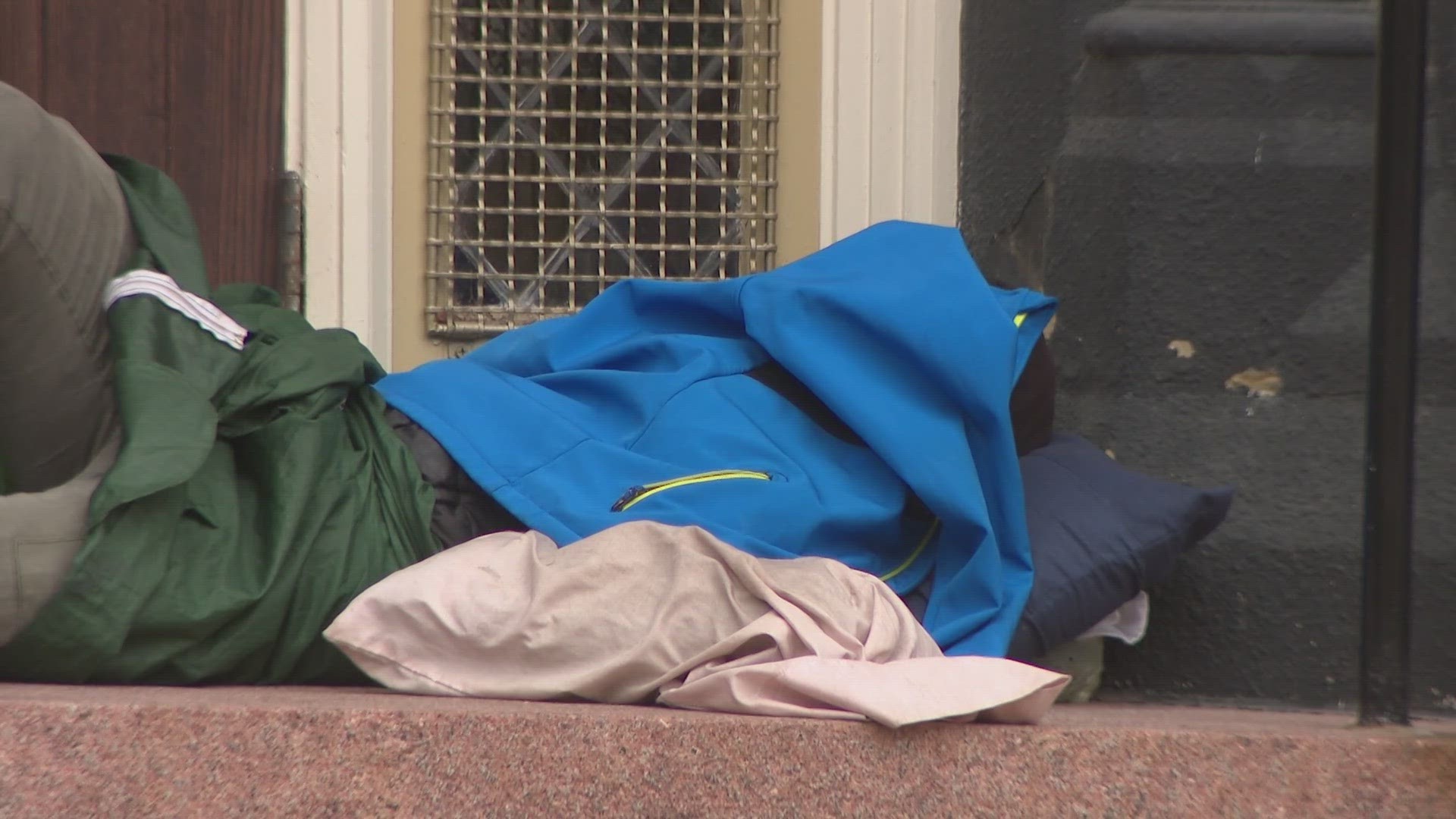ST. LOUIS, Missouri — A revised 'Unhoused Bill of Rights' that no longer includes provisions to allow public urination or defecation still faces strong opposition at City Hall.
The Board of Aldermen Housing and Urban Development and Zoning Committee heard hours of testimony at a hearing on Tuesday afternoon.
Alderman Michael Browning of the city's 9th Ward said several West Coast cities have handled homeless issues poorly.
"I'd like to avoid becoming those cities," Browning said.
“This is a serious issue and I don’t think this is a serious bill," he said in an exchange with 7th Ward Alderwoman Alisha Sonnier, the bill sponsor.
“To say it’s not serious is just completely disrespectful and disingenuous," 14th Ward Alderman Rasheen Aldridge shot back.
The terse exchange between three freshmen members highlighted the difficult path ahead as city leaders consider ways to expand options and reduce barriers to shelter.
“As written, I do not support these bills," 1st Ward Alderwoman Anne Schweitzer said. "I'm not in favor of removing the plat and petition process."
The new proposal would make it easier for homeless shelters to open up in new communities without the current requirement to gather significant public support from neighbors living nearby.
"You need 51%. So it's a lot," St. Peter and Paul's Community Services Director Anthony D'Agostino said.
On three separate occasions, the homeless shelter which is currently located in the basement of a Soulard church has attempted to relocate to larger, more modern facilities, but the city's petition requirements blocked their expansion.
"We have not gotten close to 50% in our historic efforts," D'Agostino said. "Probably in the thirties, if we're lucky."
"Zero shelters have opened in the last 15 years under that process," Sonnier testified to her colleagues. "We know we don't have bed capacity."
"Homelessness increased nearly 20% in the last two years," she said. "We are perpetuating poverty."
Sonnier said the changes in her new proposal include input from the city's police chief and homeless advocates across the city. Some of the requirements in the bill would order the city to select a location for a "safe camping area," complete with toilets, showers, electricity, and running water.
"Where is this money coming from?" Browning queried. “If you look through this whole bill, the word ‘heat’ isn’t mentioned once.”
The proposal would also mandate the city provide 24/7 security at each safe campsite, either from a police officer or some sort of police surveillance technology; however, the plan would send any officer accused of removing a homeless person or panhandler into sensitivity training.
Jane Dueker, a lobbyist for the police union, called that requirement "total BS" in a social media post.
Other critics expressed concerns that the tent encampment site plan would attract more homeless to gather in the city.
Board of Aldermen President Megan Green rebutted those concerns and described the proposal as a temporary means to funnel people from the streets into more permanent shelters.
"I think I see more encampments opening in our city than I've ever seen before," Green said. "We still don't have a process for decommissioning them and making sure people get into safe, stable housing. This bill creates that process."
"When an encampment is identified, the clock starts ticking," she explained. "We go out, we give a 30-day notice. That 30 days gives time for our service providers and the city to get together and figure out a housing plan for the folks who are living in the encampment and identify the appropriate housing to get them there."

